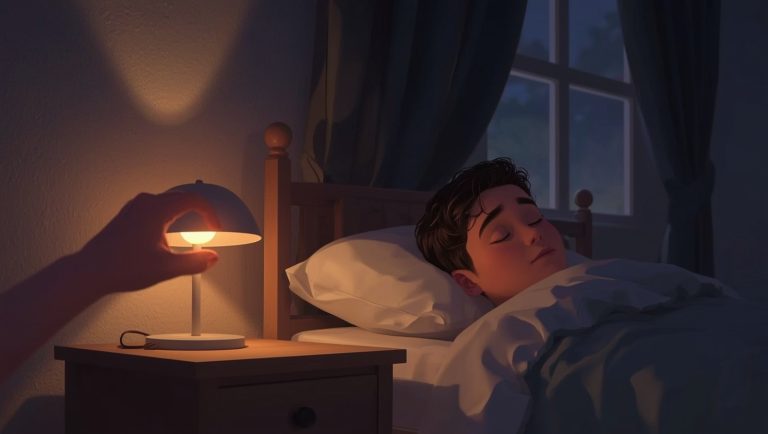Similarities Between Epilepsy and Migraines
Epileptic seizures can co-occur with migraines within the same person. Statistics indicate that people with epilepsy are twice as likely to develop migraines as the general population.
In some cases, people with migraines can also develop epilepsy when accompanied by another risk factor like traumatic brain injury, stroke or related underlying disease.
The things that epilepsy and migraines have in common:
- Both episodes occur when the electrical activity of the brain becomes altered due to specific trigger factors
- Both have unpredictable start and periods of “attack” that ends up with recovery
- People can develop migraine and epilepsy due to head trauma
- Epileptic disorders and migraine headaches appear to be running in families
Further, we will highlight some of the common symptoms that epilepsy and migraine share:
- Pain and discomfort in the head
- Vision changes
- Sickness and upset stomach
- Vomiting
- Tingling and numbness in the extremities and face
There are specific triggers that can potentially provoke an episode of epileptic or migraine attack, including:
- Stress and anxiety
- Sleep deprivation or changed sleep patterns
- Alcohol consumption
- Taking certain medications, or in some cases not taking the medication
However, not all people diagnosed with epilepsy have migraines before and after seizures and vice versa. Every person is different, and so is our physical and mental functioning. Therefore, how our body responds to various challenges varies from person to person.

What Is Migralepsy?
Migralepsy is a term used in the past to describe a condition when a person is diagnosed with both, migraine and epilepsy. It is thought that a migraine attack with aura can trigger the incidence of an epileptic seizure.
At present, this specific condition is known as migraine aura-triggered seizure. However, there is a lack of solid evidence to support the relationship between migraine and epileptic seizures. The epilepsy foundation still doesn’t support the condition.
Many people experience headaches or migraine after a seizure or in the postictal phase. However, this is not regarded as migralepsy. Also, people who are diagnosed with both migraines and epilepsy, but they appear in different periods, it is not considered as migralepsy either.
Symptoms of Mygralepsy
One of the distinctive features of migralepsy is the order of symptoms in which they appear within a person. We can divide them into two major stages, migraine with aura and the actual epileptic seizure.
Migraine and Aura
If you experience a migraine with aura, you will likely have an epileptic seizure in the following minutes or hours after the migraine. Aura can begin a few minutes or hours before the migraine or sometimes can accompany the headache.
Aura presents a set of neurological signs that appear gradually. People can have all or a couple of them.
- Visual Aura symptoms are the most common aura-associated symptoms affecting your eyesight and vision. For example, you may see flashing lights, wave lines or blind spots.
- Sensory Aura symptoms- Many people experience tingling and numbness in the extremities and feel like pins and needles. They can start from one body part and spread to the face, even the tongue.
Other symptoms that people with aura may experience include:
- Weakness
- Loss of balance
- Speech difficulties, including slow talking or inability to speak
Whilst there are several types of migraines with aura, migraine episodes without aura are unrelated to migralepsy.
Seizure
In most cases, people with migralepsy will experience a seizure approximately one hour after the migraine with aura. During a seizure, a person may experience different involuntary movements or loss of conscience, depending on the seizure type.
The most common types of epileptic seizures are the following:
- Simple Focal Seizures– People usually have twitching eyes and muscles or have an unusual taste and smell.
- Complex Focal Seizures– During this type of seizure, the person is aware of everything happening around him but may be unable to respond to questions or directions.
- Absence Seizures– People may be staring into space or blinking uncontrollably.
- Tonic-clonic Seizures– The most common types of seizures are tonic-clonic, also known as grand mal seizures. During this episode, a person can fall down if standing, have convulsions or involuntary movements with the arms and legs, or lose consciousness.
- Secondary Generalized Seizures– A focal (partial) seizure can be followed by a generalized seizure, including tonic-clonic or absence episode.
Can Migraines Cause Epilepsy?
Scientists are still investigating the potential relationship between migraine and epileptic seizures. Nevertheless, scientists in the related field haven’t found supported evidence suggesting that migraine can cause an epileptic seizure.
Can Epilepsy Cause Migraines?
Epileptic syndromes can sometimes cause headaches that usually appear before the seizure occurs. Sometimes, this headache can be as intense as a migraine. In the medical vocabulary, these are regarded as pre-ictal headaches that can be a warning sign that a seizure is about to happen.
A person with epilepsy can also have a headache after a seizure. The most common types of seizures associated with migraines include:
- Tonic-clonic seizures- These are the types of seizures that are most commonly related to epilepsy. They appear with stiffening of the body, jerking muscle movements or loss of awareness.
- Temporal lobe seizures- Typically, people with this kind of seizure experience unusual feelings of anxiety, euphoria or déjà vu.
- Occipital seizures- Usually start on one side of the brain and affect a person’s vision and coordination. People may experience flashing lights, distorted images, or loss of balance.
Thankfully, the medications used to treat seizures are also effective in treating migraines.
Can a Migraine Attack Cause Someone to Have a Seizure?
Although seldom, a migraine attack with aura can cause a seizure within one hour of the headache episode. However, a migraine without aura is not associated with causing a seizure.
Rare and more severe migraine attacks, such as hemiplegic migraine, can lead to changes in behaviour, confusion, memory loss and seizure.
Is there a Connection Between Migraine and Epilepsy?
Migraine and epilepsy share several characteristics that open the path to a discussion about the connection between migraine attacks and epileptic seizures. Whilst scientists are still studying the potential link between migraine and epilepsy, current evidence suggests that epilepsy is not the cause or trigger of migraine attacks.
However, certain types of seizures can lead to headaches that can appear before or after a seizure. It is said that 45% of people with seizures experience a headache after the epileptic episode. The intensity and duration of the post-ictal headache can vary in person. Still, some can last 6 to 24 hours, sometimes longer.
In rare cases, people may have a headache or a migraine as their only symptom of a seizure, such as the specific type of epilepsy syndrome in children known as benign focal epilepsy with occipital paroxysms.


Can Seizures Cause Memory Loss?
Many people with epilepsy may experience memory challenges during or after a seizure. Any type of seizure can impact your memory, and the overall effects are different in each person.
Epileptic seizures occurring in the frontal or temporal lobes of the brain are more likely to cause memory loss in persons with epilepsy.
For example, having a seizure in the left temporal lobe may affect your ability to learn names or memorise important facts for your work, exam, or other daily activities. People with this type of seizure may struggle with uttering the right words or get confused in the middle of a sentence.
Visual memories are created in the right temporal lobe of the brain. Temporal lobe epilepsy may cause temporal memory loss of people’s faces or events that occurred immediately before the seizure.
The brain’s frontal lobe is responsible for the memory of intentions or prospective memory.
Having a seizure in this part of the brain may affect your ability to recall the plans and intentions for the future.
The Memory After a Seizure
Experiencing memory loss after a seizure is not unusual for people with epilepsy. This state of body and mind is known as post-ictal confusion, which disappears once the person recovers from the episode. The duration of post-seizure memory loss varies from person to person.
In the post-ictal phase, people may feel sleepy, tired or exhausted, but they will soon return to normal.
Sometimes, even well-controlled epileptic seizures can still cause memory challenges, such as temporal lobe epilepsy. However, medication treatment, along with additional care and support, can help people with seizures reduce the effects of the seizure and improve their quality of life.
Seizure awareness is also important for keeping people safe at home and in the community.
Can Migraine Cause Memory Loss?
Temporary brain loss, confusion and brain fog often go hand in hand with migraine headaches. Many people experience these symptoms before, during or after the migraine episode.
Brain fog and memory loss can appear up to 48 to 24 hours before the headache occurs. In this period, people may feel and act confused, struggling to find the right words or having difficulty focusing on what they are doing or saying.
Sometimes, these symptoms can be considered the warning signs of a migraine. However, memory lapses and clouding of consciousness may appear after the headache, a condition known as the “migraine hangover”.
Whilst these symptoms are transient and not a matter of concern in most cases, proper care and self-attention are crucial for living an active and meaningful life with a migraine.
Get Humanised Support and Care with Unique Community Services
At Unique Community Services, we deliver professional, CQC-regulated care for children and adults with epileptic seizures. Our goal is to foster people’s safety and independence, supporting their journey to rewarding and meaningful lives.
Our highly trained clinicians provide person-centred and humanised care in the comfort of your home. We create strong relationships with the people we support and their families to provide the best outcome possible.
Our care plans are always designed for the individual needs of the people we care for. We provide intentional and all-encompassing support to people with complex care needs. For more information, contact our offices in Leeds and Manchester, or contact us here.




